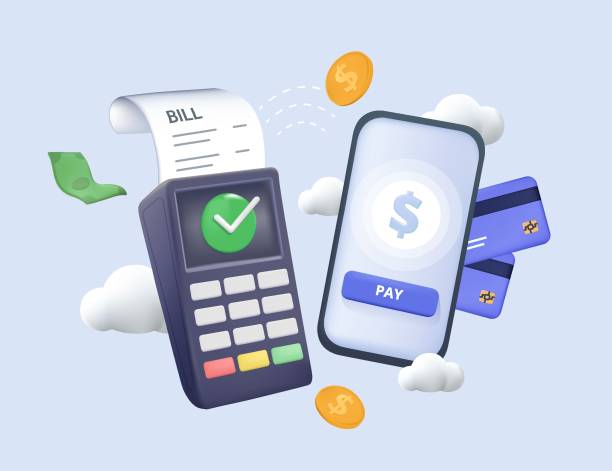In the ever-evolving world of e-commerce, entrepreneurs are constantly on the lookout for the best platforms to sell their products. Among the most popular options are Shopify and eBay, each offering unique advantages and catering to different needs. Understanding the key differences between selling on Shopify vs eBay can help you make an informed decision about which platform aligns best with your business goals. Let’s dive into the specifics of each to help you determine the ideal marketplace for your venture.
Shopify: Your Online Storefront
1. Customization and Branding
Shopify stands out for its ability to offer extensive customization and branding options. When you choose Shopify, you are essentially building your online store from scratch. This means you have complete control over the look and feel of your website, allowing you to create a unique brand identity. With a plethora of themes and plugins available, you can tailor your store to meet specific aesthetic and functional needs. This level of customization is perfect for businesses aiming to establish a strong brand presence.
2. Ownership and Control
One of Shopify’s most significant advantages is ownership. When you create a store on Shopify, you own the website and all its content. This level of control means you can implement any marketing strategies, SEO practices, and sales tactics you see fit. You’re not bound by external rules and regulations as you would be on a marketplace like eBay. This freedom can be particularly beneficial for businesses that want to scale and innovate without restrictions.
3. Scalability and Growth
Shopify is designed to grow your business. Whether you’re a small startup or a large enterprise, Shopify provides the tools necessary to manage and expand your store. The platform supports various business models, including dropshipping, print-on-demand, and traditional retail. Moreover, Shopify’s robust infrastructure ensures that your store can handle high traffic volumes and large inventories, making it an excellent choice for businesses with ambitions to scale.
4. Customer Relationship Management (CRM)
With Shopify, you have direct access to your customers’ data. This means you can build and maintain strong relationships through personalized marketing, email campaigns, and customer loyalty programs. Understanding your customer base is crucial for long-term success, and Shopify’s integrated CRM tools provide valuable insights into buying behaviors and preferences.
5. Payment Options and Fees
Shopify offers a variety of payment gateways, including its own Shopify Payments, which can save you money on transaction fees. While there is a monthly subscription cost, the platform’s competitive pricing tiers make it accessible for businesses of all sizes. Additionally, you have more control over shipping rates and policies, which can improve your profit margins.

eBay: The Online Marketplace Giant
1. Built-In Traffic and Audience
eBay is one of the largest online marketplaces, boasting millions of active users worldwide. This vast audience means that products listed on eBay are immediately exposed to a large number of potential buyers. For new businesses or those without an established online presence, eBay’s built-in traffic can be a significant advantage. You don’t need to invest heavily in marketing to drive visitors to your listings; eBay does that for you.
2. Ease of Use
Listing products on eBay is straightforward and requires minimal technical knowledge. The platform is user-friendly, making it easy for sellers to create listings, set prices, and manage orders. This simplicity is ideal for individuals or small businesses that want to start selling quickly without the need for extensive setup or customization.
3. Auction Style and Fixed-Price Listings
eBay offers flexibility in how you sell your products. You can choose between auction-style listings, where buyers bid on items, or fixed-price listings, where products are sold at a set price. Auctions can generate excitement and potentially higher sale prices, especially for rare or high-demand items. Fixed-price listings provide consistency and predictability, allowing for easier inventory management.
4. Trust and Security
eBay has a strong reputation for buyer protection, which can build customer trust. The platform’s policies and dispute resolution processes are designed to protect both buyers and sellers, making it a safe environment for transactions. For sellers, this means fewer risks associated with fraudulent activities and more confidence in the platform.
5. Cost Structure
eBay’s fee structure is different from Shopify’s. Instead of a monthly subscription, eBay charges insertion fees for listings and final value fees when an item sells. This pay-as-you-go model can benefit sellers who don’t want to commit to a subscription or sell sporadically. However, it’s essential to factor in these fees when pricing your products to ensure profitability.

Making a choice: Shopify or eBay?
The decision between Shopify and eBay ultimately depends on your business needs, goals, and resources. Here are a few scenarios to help guide your choice:
Choose Shopify if:
- You want full control over your brand and website. Shopify’s customization options allow you to create a unique online store that reflects your brand’s identity.
- You plan to scale your business. Shopify’s scalability and comprehensive e-commerce tools are ideal for businesses with growth ambitions.
- You value customer relationships. Direct access to customer data enables personalized marketing and better CRM.
Choose eBay if:
- You need immediate access to a large audience. eBay’s vast user base can drive significant traffic to your listings, making it easier to generate sales.
- But if you like a simple, low-commitment selling process. eBay’s ease of use and pay-as-you-go fees are perfect for casual sellers or those just starting.
- And if you want to leverage auction-style selling. If your products are rare or high demand, eBay’s auction format can help you achieve higher sale prices.
Conclusion
Both Shopify and eBay offer unique advantages for online sellers. Shopify provides a comprehensive platform for building a custom online store with significant control and scalability. eBay, on the other hand, offers a ready-made marketplace with a vast audience and simple listing processes. By understanding the key differences between these platforms, you can choose the one that best aligns with your business objectives and set yourself up for e-commerce success. Whether you’re building a brand from the ground up or tapping into an existing marketplace, the right platform can make all the difference in achieving your sales goals.












